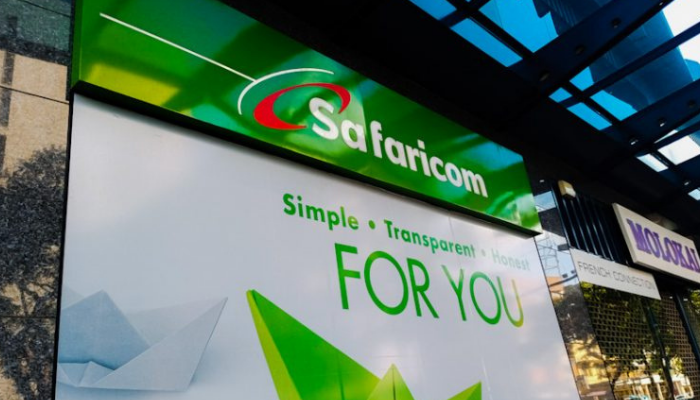Safaricom borrowed Ksh24bn to fund infrastructure development

The country’s giant telco, Safaricom borrowed Ksh24.7 billion for the period ended September to fund its dividend payments and support infrastructure development.
This was on the back of the company’s profit loss due to the coronavirus pandemic, that catapulted into a waiver of M-Pesa transaction charges for the units below Ksh1, 000.
Kenya Commercial Bank (KCB) is among major lenders that granted the loans to Safaricom, according to the Business Daily report.
This borrowing is the largest one for the cash-making firm, which has, for many years, been able to foot its bills and fund operations.
The move to take more loans, seen as a cash flow management measure, raised the telco’s debt load to a new high of Sh32.7 billion.
For the period ended June, Safaricom reported a profit loss of six percent to Ksh33 billion, all attributed to fall in voice data and M-pesa revenues following the advent of COVID-19.
M-Pesa transactions of units below Ksh1,000 were zero-rated in March this year to cushion Kenyans from the coronavirus pandemic.
There was also a drop in voice revenues during the age of the pandemic to cut on communication expenditures. Voice revenues declined 6.5 percent as the growth in customers and usage is offset by continued downward movement on the effective rate per minute, while messaging declined 6.9 percent.
The telco’s acting Chief Operating Officer Ilanna Darcy said the ongoing M-Pesa transaction relief to cushion consumers and the overall economic effect of COVID-19 on households dented slowed profits growth.
“The free cash transfers have weighed hard on our half year results. M-Pesa revenues now account for 30 percent of total revenues in comparison to 33 percent last year,” noted Safaricom Acting Chief Finance Officer Illana Darcy.
The telco through its M-PESA and Safaricom Foundations offered a leaning shoulder when the pandemic hit home and committed Ksh.200 million toward providing food and nutrition to Kenyans in need in the wake of the pandemic.
It was much of the plea from President Uhuru Kenyatta who called for emergency resource mobilization towards containing the spread and impact of the COVID-19 pandemic.
With the rise in demand for digital space, the telco is now banking on increasing its 4G reach across the country by the end of the year, one way for it to increase its revenue brackets.
This coming on the back of Safaricom’s launch of a gadget financing scheme, ‘lipa mdogo mdogo’ to enable its 2G and 3G customers to acquire 4G ready devices.
Safaricom Chief Executive Peter Ndegwa said the company plans to launch enhanced financial service and connectivity products in support of Small and Medium Enterprises (SMEs), which form the majority of enterprises in Kenya.
“We want to give SMEs more control. We know SMEs have combined individual and personal transactions. We want to launch an app we are calling ‘pochi la biashara’ to help separate these two to give them more control.” He said.

